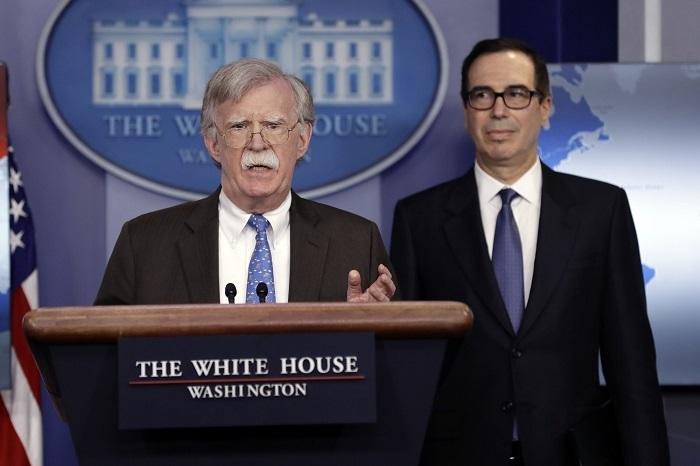WASHINGTON—The Trump administration imposed sanctions on Monday, Jan. 28, on Venezuela’s state-owned oil company, a potentially critical economic move aimed at increasing pressure on President Nicolás Maduro to cede power to the opposition.

National security adviser John Bolton (L) and Treasury Secretary Steven Mnuchin during a press briefing at the White House, on Jan. 28, 2019. Evan Vucci/AP Photo
|Updated:




